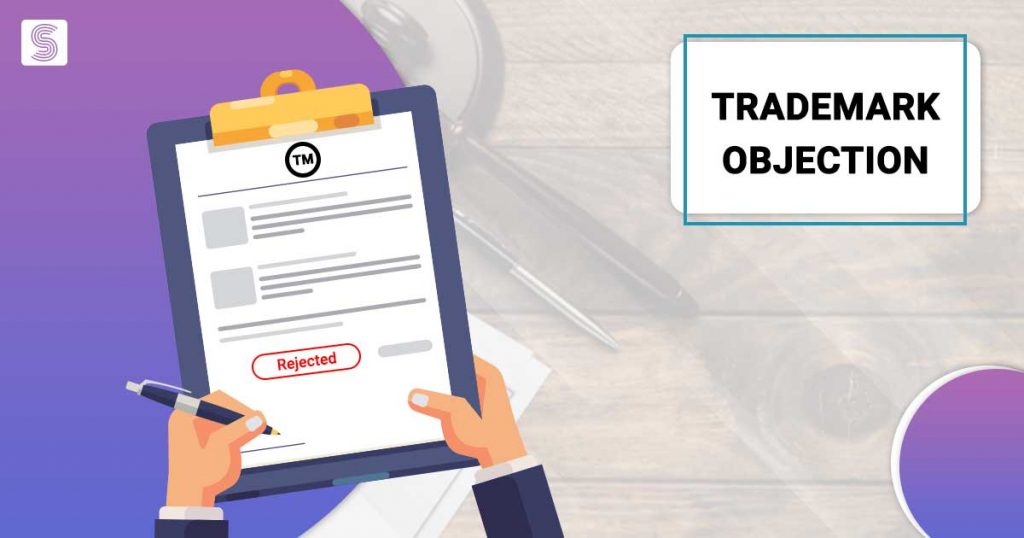What are the Reasons for Trademark Objection and How to Respond to them?

Dashmeet Kaur | Updated: Dec 10, 2019 | Category: Trademark
Trademark is a type of logo or design which gives a distinctive identity to a company. Often companies get recognized only because of their unique trademarks. It has become mandatory for every Organization to outline a separate logo that appropriately defines its business. The registration of a trademark enables the owner to establish a peculiar individuality in the market and obtain royalties. However, the process of trademark approval is complex, and in many cases, it can result in rejection. There can be numerous reasons for trademark objection, but with the right response, one can get through it.
Therefore, this blog will resolve all your doubts related to, What are the Reasons for Trademark Objection and How to Respond to them?
Table of Contents
An Overview on Trademark Objection
Once an applicant files to trademark registration, after that, the examiner inspects his application and can object if he suspects the authenticity of the trademark. The authority carefully scrutinizes the applicant’s mark and compares it with previous brands that look similar to it. If the examiner does not catch any differences in the proposed trademark, then he can raise trademark objection.
Most Common Objections Raised in an Examination Report
Though there are various objections raised by a trademark examiner, one must know about the general objections and their implications. Here are the most common charges on trademark:
- As per Section 11 (1) of the Trade Marks Act, 1999, an examiner can object to a trademark application if he finds any similar or same trademarks on record of his register for the similar goods or services. An examination report inscribes about 90% of such trademark objection.
- Another objection that the trademark authority registers frequently is the apparent indication of a trademark about the products and services. Though a logo of a brand must designate with its trade, it should not clearly promote the intended purpose, geographical origin or other aspects of the offered services.
- The third most common type of objection raised by an examiner falls under Section 9(1) (a) of the Trade Marks Act. According to that, if your trademark relates to a familiar name/geographical, non-distinctive geometrical figure, name/ornamental, surname/personal, or any such thing, then it is incapable of differentiating your goods and services from others.
Key Reasons for Trademark Objection
An examiner reviews the trademark application to ensure that it does not breach any rules of the Trade Mark Act. These are the reasons for objection:
Filing incorrect information in the form: If the examiner detects any falsity in the details of trademark application like the principal place, name, or any other information, then it is prone to raise an objection.
Fill the wrong form: There are instances wherein, the applicant fills appropriate information but in the wrong form. Further, in such scenarios, the examiner is free to object the application.
Unclear description of goods and services: The trademark examiner can object if the applicant mentions a large number of goods and services in his application without any clear description. Besides, if the authority finds the information to be vague and baseless, the application can get rejected.
Trademark holds deceptive marks: Any logo that baffles or misleads the public in terms of nature, usage, quality, of the applicant’s business, it is most likely to raise an objection. The examiners directly discard that application which can deceive the masses
How to respond to objections of Trademark Examiner?
When the trademark examiner objects to an application, its status is marked as “objected” in the Indian Trademark Registry portal. If your application has also got objected, then you must follow these steps to file a response against your objected trademark:
- Analyze the Trademark Objection: The first and foremost step that one needs to undertake after his application gets objected is to analyze the objections thoroughly. Since any obscurity from applicant’s end can lead to the wrong reply of that particular objection.
- Draft a Reply to Objection: Before you straightway write a response, draft a reply which must comprise these points:
- A counter reply to the objection with the rules of law and judgments supporting that statement.
- Further, illustrate the differences between your trademark and the one cited conflicting mark.
- Affix other essential documents and proofs that validate your response.
- Along with the documents, attach an affidavit[1] which states the usage of your trademark on your company’s website and social media platforms.
- Once you confirm the draft, file your response online on the portal of Trademark e-filing.
- Trademark Hearing- If the authority accepts your response, then your application will further get processed for registration and successfully published in the Trademark Journal. However, the trademark examiner can demand further clarification if your response is not justifiable. Thereby the authority will schedule trademark hearing as notified by a Hearing notice.
- Publication of Trademark in the Journal- If the outcome turns out in your favour, the authority shall accept your trademark and grants order to publish it in the Trademark Journal. Whereas, in case of a negative outcome, the examiner shall pass a Refusal Order that briefs the ground for refusal.
- Note– You still has an option to file a Review Petition request within 30 days from the date of the Refusal Order. In the request, you need to mention the reasons on which the order must get reviewed.
- Trademark Registration- Lastly, when your trademark finally gets published in the Trademark Journal, it shall be open to opposition for 4 months. If no third-party raise objections within four months, then the trademark will get proceeded towards registration. Thereby you will procure a Trademark Registration Certification. In case someone files a trademark opposition that will be followed as per the set rules.
Conclusion
If you don’t acquire any legal assistance to deal with trademark objection, chances are you may fail to get success. So it’s better to contact a competent lawyer to guide you about the dos and don’ts in the process of trademark registration. The best option for you will be Swarit Advisors; we are a legal firm that holds expertise in handling the cases of trademark objection. Our team will help you create an affidavit and industry-specific replies.
Also, Read: Top Ten Reasons for Trademark Objection in India














